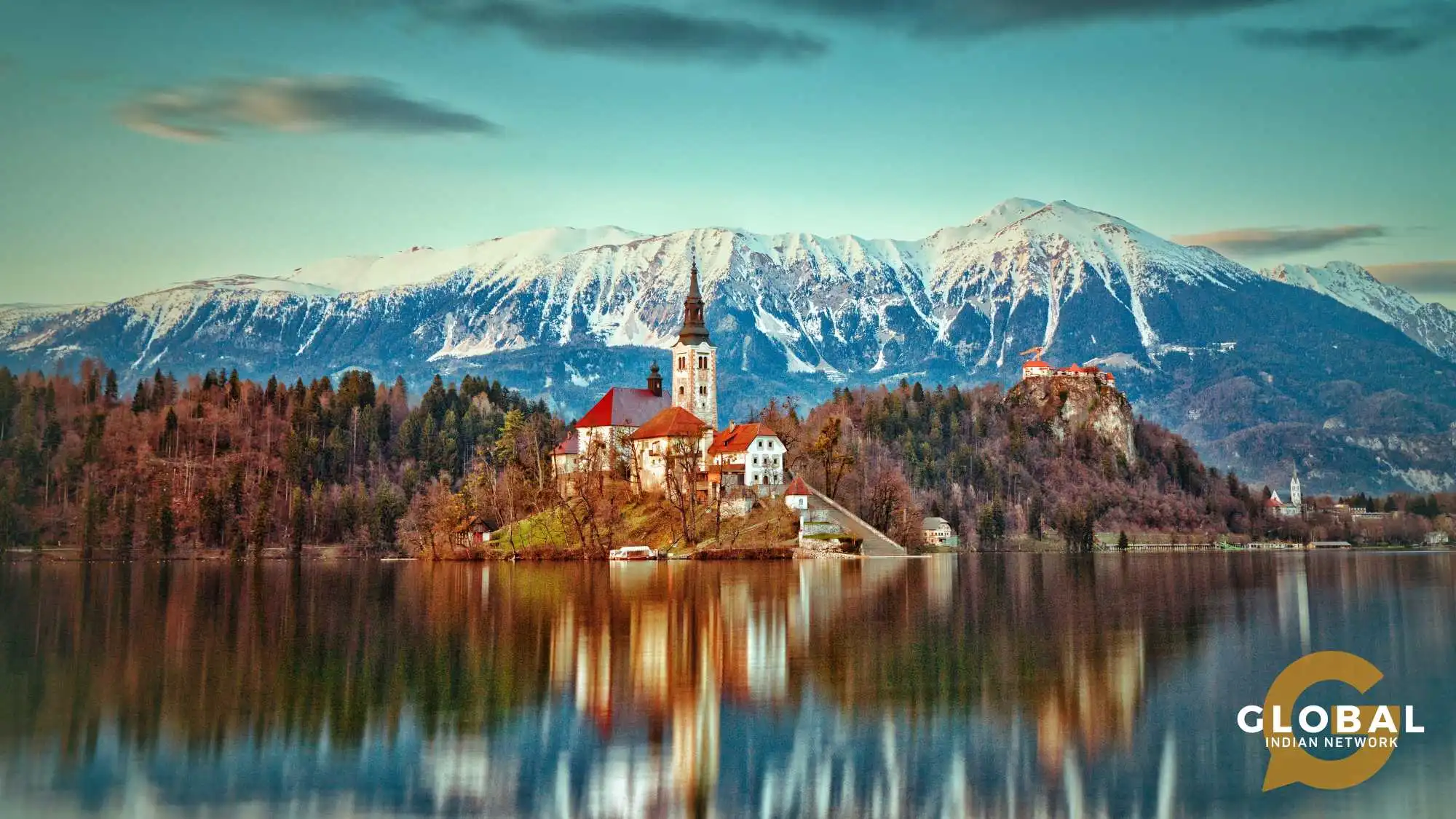In 2024, ecotourism in Slovenia has reached new heights, reflecting a global trend towards sustainable travel practices. Nestled amidst pristine landscapes and rich biodiversity, Slovenia has emerged as a beacon for eco-conscious travellers seeking authentic and environmentally responsible experiences. From exploring its lush forests and crystal-clear rivers to engaging with local communities and wildlife conservation efforts, ecotourism in Slovenia offers a harmonious blend of adventure and conservation. In this article, we delve into the thriving world of ecotourism in Slovenia in 2024, examining its significance, initiatives, and the profound impact it has on both travellers and the preservation of natural ecosystems.
Table of Contents
An Overview
Slovenia, a hidden gem nestled in the heart of Europe, is rapidly gaining recognition as a sustainable tourism destination. Let me share some fascinating insights about this enchanting country.
Slovenia's lush forests cover two-thirds of its surface, and its cities are adorned with vibrant green hearts, showcasing its commitment to preserving its pristine landscapes. Slovenia has been recognised for its commitment to eco-tourism, with nine Slovenian destinations included in the 100 most sustainable destinations worldwide list, including Bled, Brda, Soča Valley, Kočevsko, Ljubljana, Logar Valley-Solčava, Miren Kras, Podčetrtek, and Rogaška Slatina.
Slovenia is known for its commitment to sustainability, safety, and hygiene, ensuring high standards for travellers on its beautiful green land. Slovenia's European Destinations of Excellence program promotes authentic experiences, including the Alps, the Adriatic Sea, sustainable cycling tours, and delicious culinary adventures, promoting its green ethos.
YOU MIGHT BE INTERESTED IN: Is Slovenia the Emerging Logistics Goldmine in 2024? Insights from Natasa Pogacnik
The Green Scheme of Slovenian Tourism
Let's delve into the Green Scheme of Slovenian Tourism (GSST) and its vital role in promoting sustainability and evaluating tourism providers.
Definition and Purpose
The GSST is a comprehensive program initiated by Slovenia to foster sustainable practices within the tourism industry. Its primary purpose is to encourage responsible tourism, ensuring that the natural beauty, cultural heritage, and local communities thrive harmoniously. By implementing the GSST, Slovenia aims to strike a balance between tourism development and environmental conservation. It provides a framework for tourism providers to adopt eco-friendly practices, minimise their ecological footprint, and enhance the overall visitor experience.
Role in Promoting Sustainability
The GSST certification program voluntarily certifies various tourism stakeholders, including accommodations, restaurants, attractions, and tour operators, to demonstrate their commitment to sustainability. The GSST establishes international standards and criteria for waste management, energy efficiency, water conservation, biodiversity protection, and community engagement. This eco-tourism program provides training and guidance to tourism providers on sustainable practices, promoting responsible travel awareness among staff and guests.
Certified providers in a recognised sustainable tourism network gain a competitive edge, as eco-conscious travellers increasingly prefer eco-friendly options, using the GSST label as a marketing tool. The GSST promotes sustainability in Slovenian destinations by promoting eco-friendly practices among providers, thereby enhancing local ecosystems and communities.
Evaluating Eco-Tourism Providers
Slovenia's European Destinations of Excellence program promotes authentic experiences, including the Alps, the Adriatic Sea, sustainable cycling tours, and delicious culinary adventures, promoting its green ethos. Providers can earn certification levels like bronze, silver, gold, and platinum to demonstrate their commitment to sustainability. They also undergo regular audits to ensure they maintain their certification and align with evolving sustainability standards.
The GSST guides Slovenia's tourism industry towards a greener, more responsible future, promoting sustainable travel, environmental conservation, and positive community impact.
Certification Categories
Let's explore the Slovenia Green Scheme of Slovenian Tourism (GSST) certification levels and highlight some remarkable examples across various categories:
Certification Levels
The GSST offers several certification levels, each reflecting the depth of commitment to sustainability.
Bronze: The bronze label is awarded to destinations, accommodations, parks, agencies, attractions, restaurants, and beaches that meet the initial sustainability criteria.
Silver: The silver label is awarded to providers who exceed basic requirements and demonstrate more sustainable practices.
Gold: Gold status signifies a high level of commitment to environmental and social responsibility.
Platinum: This certification is the highest level reserved for exceptional providers who excel in sustainability efforts.
Examples of Certified Providers
Destinations
Slovenia, known for its eco-friendly urban planning, has been awarded the platinum Slovenia Green Destination label, while Lake Bled's Alpine Pearl has been awarded the gold label for its sustainable practices.
Accommodations
Kranjska Gora, a silver-certified accommodation provider in the Julian Alps, and Koper, a bronze-certified option in the charming coastal town, offer unique and eco-friendly accommodations.
Parks
Triglav National Park, a pristine area renowned for its majestic Triglav mountain, is a member of the Slovenia Green Park label.
Travel Agencies
GoodPlace is a travel agency that has been certified as silver-certified, specialising in promoting sustainable travel experiences. Burjatik, Roundabout Travel, Hike&Bike, and HUD d.o.o. are similar examples.
Attractions
Logarska Dolina-Solčavsko and Rogla-Pohorje are gold-certified attractions in the Logar Valley, known for their stunning natural beauty and perfect for outdoor enthusiasts. Vintgar Gorge, Piran, Koper, Lake Bohinj, Tolmin Gorge and Predjama Castle are other examples.
Restaurants
Laško is a restaurant that offers sustainable and locally sourced cuisine, certified as a bronze-certified eco-tourism establishment. Some other examples are Franko, FTR, Breg, Georgie Bistro, and Peti 181.
Beaches
The Slovenian Coast, characterised by its pristine beaches along the Adriatic Sea, is a significant part of Slovenia's green narrative. Piran Beach, Izola Beach, and Portorož Beach are other scenic areas worth visiting.
Global Recognition
Slovenia, known for its commitment to sustainability, has been recognised as the first Green Country globally and ranked among the 12 most sustainable destinations by Conde Nast Traveller magazine and one of the top 10 countries to visit in 2022.
Slovenia's green journey continues, inviting travellers to explore its unspoiled nature while leaving a positive impact on the environment.
Successful Case Study of a Certified Tourism Provider
Let's delve into a successful case study of a certified tourism provider in Slovenia.
The Green Scheme of Slovenian Tourism (GSST) is a remarkable initiative that fosters sustainable development within Slovenia's tourism industry.
Overview of GSST: The GSST is a nationwide certification program and tool that is run under the Slovenia Green banner. The Slovenia Green Scheme aims to unite eco-tourism initiatives, provide tools for destination and service providers to improve their practices, and promote eco-friendly initiatives. Its strategic objective is to present sustainable models in Slovenian tourism, prioritising economic, social, cultural, and environmental dimensions.
Components of GSST: The manager of the Slovenian Tourist Board is responsible for overseeing and developing the program. Supports education and creates marketing channels for Slovenia's Green travel destinations and service providers in the global tourism market. Accredited partner with Association for Sustainable Tourism GoodPlace, utilising Green Destinations Standard for assessment.
Characteristics of GSST: This comprehensive developmental approach is national in scope, internationally comparable, and based on global criteria (GDS), making it a powerful tool for positioning and promotion.
Slovenia's Commitment: The Slovenian Tourist Board has integrated the Green Tourism Strategy (GSST) into its strategic guidelines, promoting sustainable development in eco-tourism service providers and destinations.
Noteworthy Achievements: Slovenia's capital, Ljubljana, has been named the Green Capital of Europe, with 46% of its area covered by green spaces and pedestrian areas, increasing by nearly 620% in the past five years.
In summary, Slovenia's dedication to systematic and strategic sustainability, as exemplified by the GSST, positions it as a leader in responsible eco-tourism practices.
Slovenia's Sustainable Initiatives
Let's embark on a green journey through some of Slovenia's eco-tourism destinations, where nature, culture, and responsible tourism intertwine seamlessly:
Bled: Lake Bled, surrounded by the Julian Alps, is a culturally significant destination with a commitment to sustainability. It features the iconic Bled Island and Bled Castle and promotes waste reduction, eco-friendly transportation, and community involvement. Visitors can explore the lake using traditional wooden boats and hike to the castle. A half-day e-bike tour offers a cruise, traditional boats to Bled Island, and a chance to indulge in the famous Bled cream cake.
Brda: Brda, located in western Slovenia, is renowned for its vineyards and orchards. It practices sustainable viticulture using organic and biodynamic practices. The region also encourages agrotourism, allowing visitors to experience local life and taste delicious wines.
Soča Valley: Soča Valley in the Julian Alps is a popular outdoor destination with activities like rafting, hiking, and paragliding. It prioritises clean water and biodiversity conservation, and visitors can explore Triglav National Park. Eco-tourism with adventure initiatives like Leave No Trace and river clean-ups helps preserve the river, promotes responsible behaviour, and ensures the local economy thrives in the unspoiled Soča Valley.
Ljubljana: Ljubljana, the first Green Capital of Europe in 2016, is a vibrant capital city with a blend of green spaces and urban life. Its pedestrian-friendly streets, efficient public transport, and green initiatives define the city, while the Ljubljana Marshes are a protected natural gem.
Škocjan Caves: The Škocjan Caves, a UNESCO World Heritage Site, are a protected underground wonder with eco-tourism practices such as limited visitor numbers, educational tours emphasising conservation, and local employment. This balance ensures the caves remain pristine for future generations, preserving their unique geological significance.
Rogaška Slatina: Rogaška Slatina, a spa town known for its healing mineral waters, is renowned for its wellness and health tourism, featuring thermal springs, wellness centres, and sustainable practices in local cuisine and cultural experiences.
Rogla-Pohorje: Rogla-Pohorje, a mountainous region in eastern Slovenia, offers year-round outdoor activities like skiing, hiking, and cycling, with a focus on waste reduction and eco-friendly accommodation.
Vipava: Vipava Valley, a wine-growing region in southwestern Slovenia, is known for its sustainable vineyards and orchards, offering visitors the opportunity to explore wine cellars, taste local delicacies, and enjoy the Mediterranean climate.
Kobarid: Kobarid, renowned for its World War I history and Kobarid Museum, promotes eco-tourism practices such as historical preservation, community involvement, and cultural events. The museum showcases artefacts, while festivals promote local traditions and crafts. This preserves the town's rich heritage and boosts tourism.
These destinations exemplify Slovenia's commitment to green and responsible tourism. Whether you're sipping wine in Brda, hiking in Soča Valley, or strolling along Ljubljana's riverbanks, you'll experience the magic of a country that cherishes its natural beauty.
Ljubljana's Green Initiatives
Ljubljana, the European Green Capital 2016, stands as a world-leading destination in sustainable tourism. The city's commitment to environmental consciousness and quality of life is commendable. Here are some remarkable green initiatives in Ljubljana:
Sustainable Tourism Focus: Eco-tourism development aims to make Ljubljana an eco-friendly, attractive destination for both locals and tourists.
Certifications and Monitoring: Ljubljana, Slovenia, is a city that consistently monitors sustainability indicators across various sectors, earning eight certificates across three categories, including the Slovenia Green Destination Platinum certificate, the highest level of recognition for eco-tourism in Slovenia.
Car-Free Zone: Since 2008, Ljubljana's center has been traffic-free, covering 12 hectares and becoming the largest car-free zone in the European Union. Visitors can explore via Urban electric tourist trains and Kavalir electric vehicles.
Green Supply Chains: Ljubljana Tourism promotes locally produced food in hotels and restaurants, aiming to connect the local field to the table and guests.
Abundant Green Spaces: Ljubljana, with its 542 m² green space per resident and direct countryside access, is a city that enhances its green appeal through initiatives like the Bee Path.
Zero-Waste Efforts: Ljubljana is actively promoting waste reduction and single-use plastic elimination through its green concierge services, enhancing the visitor experience.
Remember, when in Ljubljana, you're not just a tourist—you're part of a sustainable journey!
ALSO READ: A Dive into Slovenia’s Economy | Manufacturing Sector of Slovenia in 2024
Ljubljana's Green Transportation Options
Ljubljana, the European Green Capital 2016, takes sustainable mobility seriously. Here are some green transportation options in the city:
Public Transport with Urbana Card: Ljubljana's public buses are eco-tourism friendly, using methane fuel. The Urbana Smart City Card simplifies payment for public transport, parking, and other urban services, benefiting residents and visitors through a single contactless card.
BicikeLJ Public Bike Scheme: Ljubljana's public buses are aligned with eco-tourism principles, using methane fuel. The Urbana Smart City Card simplifies payment for public transport, parking, and other urban services, benefiting residents and visitors through a single contactless card.
Car Sharing with Avant2Go: Avant2Go, Ljubljana's car-sharing scheme, exclusively uses electric cars, offering a convenient and environmentally friendly alternative to traditional car sharing.
Pedestrian-Friendly City Center: Since 2008, Ljubljana's city center has been a car-free zone, offering eco-friendly transportation options like the Urban electric tourist train and Kavalir electric vehicles for pedestrian exploration.
Choose Sustainable Travel: To minimise your carbon footprint, consider travelling by train or bus to Ljubljana, and consider airlines that participate in carbon footprint reduction programs.
Remember, in Ljubljana, green mobility isn't just an option—it's a way of life!
Cycling in Ljubljana
In Ljubljana, the capital city of Slovenia, cycling is actively promoted through various initiatives and measures. Let's explore how Ljubljana encourages cycling:
Transnational Commitment to Promoting Cycling: Ljubljana is a signatory of the Vienna Declaration's transnational commitment to cycling. The Pan-European Master Plan for Cycling Promotion, adopted in May 2021, aims to double cycling numbers by 2030. This eco-tourism commitment involves 54 countries, including all 27 EU Member States, and aims to develop and implement national cycling policies. Cyclists who rode from Vienna to Ljubljana support this transnational plan.
Urban Cycling Measurements: Ljubljana uses automatic traffic counters to measure cycling levels at four locations, with over 3 million cyclists passing through these points annually, highlighting the city's positive cycling promotion.
Velo-city 2022: Ljubljana hosted Velo-city 2022, a world cycling summit organised by the European Cyclists' Federation, bringing together advocates, cities, decision-makers, researchers, and industry leaders to shape the future of cycling. The event promotes cycling as an eco-tourism initiative and healthy transport option, benefiting the environment, healthier lifestyles, and improved urban mobility.
Ljubljana's Green Spaces
Ljubljana, the European Green Capital 2016, is renowned for its abundant green spaces. Here are some highlights:
Green Areas per Inhabitant: Ljubljana boasts an impressive 542 m² of green space per inhabitant. This commitment to greenery and eco-tourism ensures that residents and visitors alike can enjoy nature within the city.
Car-Free Zone: The heart of Ljubljana's city center has been transformed into a traffic-free zone since 2008. Covering 12 hectares, it stands as the largest car-free zone in the European Union. Visitors can explore this pedestrian-friendly area using the Urban electric tourist train or the free Kavalir electric vehicles.
Bee Path: Ljubljana actively supports pollinators by creating a Bee Path within the city. This eco-tourism initiative encourages the growth of bee-friendly plants and raises awareness about the importance of bees for our ecosystem.
Image source: Bee Path
Urban Parks and Gardens: Ljubljana hosted Velo-city 2022, a world cycling summit organised by the European Cyclists' Federation, bringing together advocates, cities, decision-makers, researchers, and industry leaders to shape the future of cycling. The event promotes cycling as a sustainable and healthy transport option, benefiting the environment, healthier lifestyles, and improved urban mobility.
Sustainable Living: Ljubljana encourages sustainable practices, such as using locally produced food in hotels and restaurants. The goal is to connect guests with the local community and promote eco-tourism choices.
Remember, Ljubljana's green spaces aren't just for aesthetics—they contribute to a healthier, happier city and a more enjoyable experience for all!
Lubjlana's Waste Management Practices
Ljubljana, the capital city of Slovenia, has made remarkable strides in waste management, positioning itself as a leader in sustainability. Here are the key practices that contribute to Ljubljana's success:
Door-to-Door Collection System: Ljubljana's public waste management company, Snaga, introduced a door-to-door collection system for organic waste, allowing residents to separate and dispose of kitchen and garden waste at their doorsteps. This approach significantly increased recycling rates and reduced residual waste.
Reduced Frequency of Residual Waste Collection: Snaga implemented door-to-door collection, reduced residual waste collection frequency, and maintained regular collection for recyclables and compostables, optimising waste management and reducing costs.
Strong Communication Strategy: Ljubljana promotes waste prevention and reuse through effective communication, engaging citizens in responsible waste practices. Snaga's commitment to clear goals and persistence in implementing measures has led to impressive results.
Impressive Achievements: Ljubljana has seen a tenfold increase in waste collection over the past 14 years, reducing disposal waste by 95% and maintaining low costs compared to other European capitals while also producing 33% less rubbish.
Ljubljana's dedication to eco-tourism, circular economy, and citizen engagement serves as a model for other global cities.
Other Outdoor Eco-Activities in Slovenia
Slovenia, nestled in Central Europe, offers a plethora of outdoor pleasures for both adrenaline seekers and nature enthusiasts. Whether you're drawn to mountain biking, caving, paragliding, or winter sports, Slovenia has something to captivate your adventurous spirit. Here are some of the greatest eco-tourism activities you can enjoy in this hidden treasure:
Bike Cheese Tour: Ljubljana's dedication to sustainability, circular economy, and citizen engagement serves as a model for other global cities.
Introductory Scuba Dive in Bled: Ljubljana's dedication to sustainability, circular economy, and citizen engagement serves as a model for other global cities.
Canyoning the Sušec: Experience a thrilling three-hour eco-tourism adventure in the Sušec canyon, exploring natural shoots, clear pools, waterfalls, and stunning river scenery.
Bled Ebike Tour: Kayak or Raft the Soča River: The Soča River, a tropical paradise with turquoise blue waters and a white limestone bed, offers stunning views and adrenaline-pumping rapids for rafting and kayaking.
Kayak the Mežica Mine: Explore the underground world of the Mežica Mine, exploring dark tunnels and learning about its fascinating history.
Hike Triglav National Park: Slovenia's Triglav National Park offers stunning alpine landscapes, scenic hikes, and fresh mountain air, providing a unique eco-tourism experience in the Julian Alps.
Postojna Caves Half-day Trip: Explore the Postojna Caves, an underground wonderland of stalactites and stalagmites, and learn about the geological processes that have shaped this subterranean realm.
Škocjan Caves and the Lipizzaner Horses Tour: Explore the UNESCO World Heritage site of Škocjan Caves, known for its underground chambers and roaring river, and visit the Lipizzaner Stud Farm to admire the elegant white horses.
Caving in Srnica: Explore the Srnica cave system for thrill seekers, exploring narrow passages, unique formations, and narrow passages to marvel at underground exploration.
Lake Bohinj Mini-Adventure Hike: Explore Lake Bohinj for a mini-adventure hike, savouring its serene beauty amidst lush forests and the majestic Julian Alps.
Slovenia's natural wonders await—so gear up, embrace the outdoors, and create unforgettable memories!
Guided Eco-Tours
Ljubljana offers a variety of eco-friendly guided tours that allow you to explore the city's natural beauty and sustainable initiatives. Here are some options:
Ljubljana Bike Tours: Guided cycling tours in Ljubljana offer a unique opportunity to explore the city's green spaces, Ljubljanica River, and key landmarks while also learning about the city's commitment to cycling infrastructure and eco-tourism practices.
Ljubljana Marshes Tour: Explore the Ljubljana Marshes, a unique wetland area, with guided tours offering insights into its biodiversity, birdwatching opportunities, and sustainable conservation efforts.
Urban Beekeeping Tour: Ljubljana boasts urban beehives, offering a guided eco-tourism trip to learn about beekeeping practices, the significance of pollinators, and sample local honey.
Green Capital Walking Tours: Ljubljana, named the European Green Capital in 2016, offers knowledgeable walking tours showcasing sustainable urban planning, green spaces, and eco-friendly architecture.
Sustainable Food Tours: Explore Ljubljana's culinary scene, showcasing local, organic, and seasonal ingredients through food tours featuring sustainable restaurants, markets, and producers.
Green Gourmet Route
Slovenian gastronomy has always been rooted in sustainability, celebrating the essence of nature and the flavours it creates. Here's a taste of Slovenia's commitment to sustainable cuisine:
Slovenia Green Cuisine Label: The Slovenia Green Cuisine label is a symbol of restaurants that prioritise sustainability by using fresh, local ingredients, incorporating traditional elements into modern dishes, and respecting seasonal changes. This label signifies their commitment to responsible eco-tourism practices.
Restaurants with the Slovenia Green Cuisine Label
Let's explore some culinary gems that embrace sustainability:
Želinc Farm: A place where tradition meets innovation, offering dishes made from locally sourced ingredients.
Pri Baronu Saksida Wines: Wine and gastronomy intertwine sustainably in their vineyard restaurant.
Kabaj Morel Homestead: A haven for organic flavours where farm-to-table cuisine shines.
Tourist Farm Pri Flandru: Experience authentic Slovenian dishes with a green twist.
The Toncevi Organic Agrotourism Farm: A farm-to-fork eco-tourism experience in harmony with nature.
Šenk's Homestead: Traditional recipes meet eco-consciousness.
Pr' Končovc Open Door Farm: A delightful blend of local ingredients and creativity.
Breg Agritourism Farm: A feast for the senses, rooted in sustainability.
Sustainable Hotel Restaurants and Cafés
Boutique hotels pay homage to local ingredients and traditions:
Kavarna Park, Bled: Sip coffee with a view of Lake Bled, surrounded by greenery.
Elegans Hotel Brdo: A culinary journey through Slovenian flavours.
Triangel Restaurant: Where sustainability meets elegance.
Kunst Restaurant and Hotel Dam, Nova Gorica: A fusion of art, culture, and cuisine.
Vila Bled: Lakeside dining with a conscience.
Hiša Krasna Restaurant: A taste of the Karst region.
Tri Lučke: A cosy spot for sustainable indulgence.
Dvor Jezeršek: Culinary excellence in a green setting.
Hotel Jožef Bled Rose: An eco-tourism retreat for food lovers.
Hotel Restaurant B, InterContinental Ljubljana: Urban sophistication with a sustainable twist.
Sunrose 7 Bela Krajina Hotel and Restaurant: A culinary adventure in Bela Krajina.
Villa Vipolže Hiša Linhart: A historic estate serving seasonal delights.
Marina Hotel Restaurant: Coastal flavours with an eco-friendly touch.
Relaxation in a Sustainable Spirit
After savouring meals made from local ingredients, unwind responsibly:
Pikol Restaurant House Raduha: Culinary pampering in the heart of nature.
Smogavc Inn and Bed & Breakfast: A cosy retreat with a green heart.
Gostilna Pension Les Tulipan: Where comfort meets sustainability.
Guesthouse Grič, Horjul: A peaceful escape in the Slovenian countryside.
Homestead Belica Špacapan House: An eco-tourism haven for foodies seeking tranquillity.
Slovenia's culinary scene invites you to taste the land, honour tradition, and celebrate sustainability—one delicious bite at a time.
Awards and Recognitions
Global Recognition
Let's highlight Slovenia, the remarkable first Green Country in the world, and its well-deserved recognition:
Global Green Destinations Day: Slovenia, the first Green Country globally, is recognised for its commitment to sustainable practices, preserving its natural beauty, biodiversity, and cultural heritage, setting a commendable example for others.
Lonely Planet's Acclaim: Lonely Planet has consistently praised Slovenia for its beautiful landscapes, charming towns, and eco-friendly initiatives, with the Julian Alps, Lake Bled, and Ljubljana receiving accolades in travel guides.
Conde Nast Traveller's Recognition: Conde Nast Traveller has highlighted Slovenia's eco-tourism practices, highlighting its commitment to responsible travel and attracting travel enthusiasts.
Slovenia's harmonious blend of nature, culture, and sustainability makes it a shining example for other destinations to follow.
ALSO READ: Sustainable Tourism in India in 2024
Conclusion
In conclusion, eco-tourism is not just a trend—it's a responsibility. As travellers, we have the power to shape the future of our planet by making conscious choices.
Slovenia's natural beauty, spanning from the Julian Alps to the Adriatic coast, is a precious resource that deserves protection and active exploration. The country's cultural heritage, including castles, traditional villages, and local crafts, thrives when visitors engage responsibly, honouring the past while nurturing the present. Eco-tourism empowers local communities in Slovenia by promoting eco-friendly accommodations, dining at green restaurants, and supporting local artisans.
Explore the nation’s green heart, enjoy its trails, organic cuisine, and eco-conscious culture, ensuring future generations inherit a vibrant and beautiful world that is as vibrant and beautiful as the one we explored today.










[…] trend, known as the "smart city" movement, is revolutionising urban environments around the globe. Slovenia, a captivating European nation renowned for its natural beauty and rich heritage, is also embracing […]
[…] the environment. This small but mighty country is mostly covered by forests, making it very green28. Slovenia is the first country globally to be called a Green Destination and ranks highly for being […]